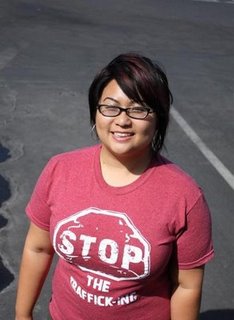
What You Say and How You Say It
One of my biggest challenges in Taiwan has been discovering how to work effectively with service providers in the NGO world. Strong personalities are drawn to this type of work, so at times I find myself at odds with those who have the same goals as I do -- protecting and fighting for human rights.
Many social workers, case workers, administrative staff and the people who manage the aforementioned people fight so hard for clients that sometimes I think it leads to them fighting with the people who are on the same side of the fence with them. It becomes one big fight for power and control that results in service providers who are tired and unhappy.
Lately, I've been caught up in this vicious cycle; I'm not a fan. It makes this type of work that is already hard even harder. I have to remind myself why I came to the VMWBO in the first place. I have to remember that communication friction, while it slows people down, reminds me how human we are -- how flexible or rigid we can become depending on our environment. Being human is a good thing. I firmly believe life would be meaningless without these trip-ups, these social hiccups.
Knowing how to speak a language, Mandarin, Vietnamese, English, is not even half of the communication battle. Just because you speak another language well, doesn't always result in a understanding between people. Effective communication is hard! Somedays, when there is a discrepancy on how to get an objective accomplished, I struggle to manage the strong personalities in this line of work, including my own. Service providers need their problems listened to and compassion extended to them as much as the residents of VMWBO. We are bridge-builders, are we not?
While my skills are not being used the way I'd like and I have to get breathing room more often than normal, I remember I'm in Taiwan. I consider this a lesson learned. And there's always 'running it off 'on my nightly exercise head-clearing trots.

 Scrambled Eggs
Scrambled Eggs 

